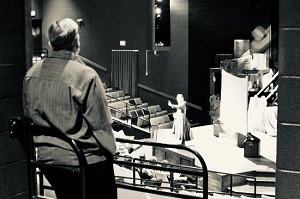Last week I went to see the doc with my 84-year-old mom. The doc decided to run some memory tests on her. It was the usual thing you see on TV on in a movie. A few questions in, the doc told her that he’s going to ask a story problem and I PANICKED.
I can’t do a story problem on paper much less in my head. How was she supposed to do one?!
When I’m forced to do a story problem, I forget the first half before I’m through the paragraph. I never know what’s important to solve the question. They are ALWAYS a nightmare.
In that moment, I was not sure if I was more terrified for my mom or for me and I didn’t have to solve the problem!
Before the doc was halfway through the story problem which he would repeat several times, I felt THE WALL go up behind my eyes. It’s something I’ve had since I was little when faced with math. Once THE WALL is up there’s no getting through it, past it, over it.
Well, that’s not entirely not true. My dad could somehow push through THE WALL and help me figure it out. And he never finished junior high! Needless to say, once I got into algebra, he couldn’t help me any more and my math grades were in the toilet after that.
When I drove home after Mom’s appointment, I was still twitchy over the math problem. At work I write all information down, figure out what I need and what is static. Then I do the math. Then I double check everything. Something is usually wrong. And usually I’ll find it. Then it occured to me that I remember the ENTIRE story problem.
You go to the store with $100. You buy a dozen apples at $3. A tricycle at $20. How much money do you have left?
Whoa. It was like fear had branded it onto my skull or something.
The only time I ever enjoyed math was when I took statistics in grad school which is–I KNOW–totally weird. It made me wonder if whatever triggered THE WALL had been avoided would I have excelled at math?

